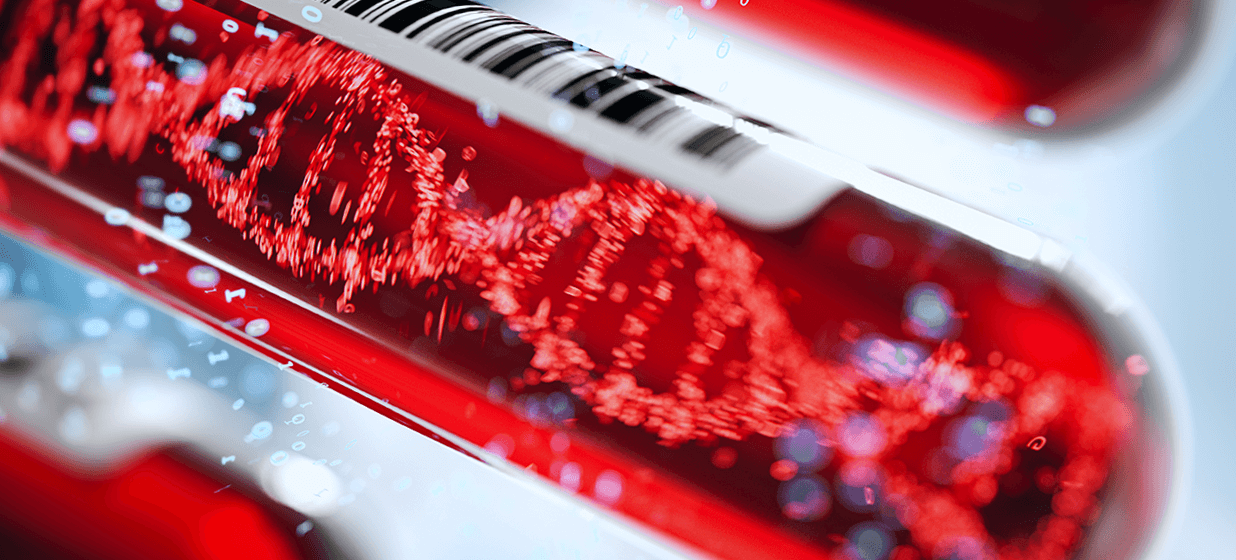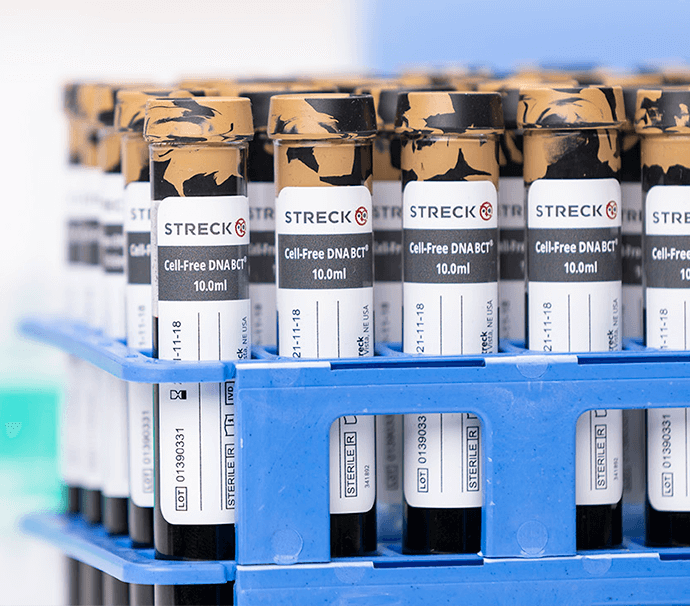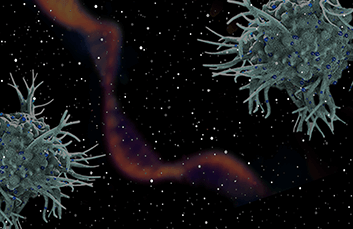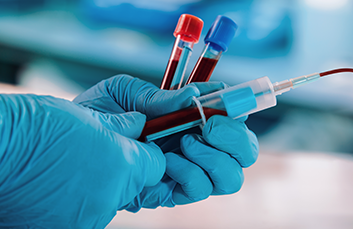FDA clearance brings liquid biopsy into a new era
Topics Featured
With the FDA clearance of several assays, liquid biopsy moves closer toward the goal of making this screening method a standard of care. Liquid biopsy utilizes bodily fluids to collect important genetic information that could reveal predisposition for certain diseases. This is especially useful in the context of cancer, where liquid biopsy can provide information about a tumor without a direct biopsy of the cancerous tissues. In this case, clinicians use liquid biopsy to examine the analytes that are released into the bloodstream from the tumor microenvironment, such as circulating cell-free DNA (cfDNA), circulating cell-free RNA (cfRNA), proteins, or even whole cells, called circulating tumor cells (CTCs). Work to advance liquid biopsy is paramount, as this technique has the potential to help drive patient care, screen for recurrence or even be a first-line diagnostic.

Though discovered in 1948, extracellular DNA and cell-free DNA (cfDNA) were not recognized as targets of interest until the 1970s, when researchers noted that patients with metastatic disease had significantly increased plasma cfDNA levels compared to non-metastatic patients. Further, decreased plasma cfDNA levels were associated with smaller tumor size and less patient pain. Since then, several studies have described how cfDNA and cfRNA in the blood can serve as biomarkers in cancer and beyond.
Now, the use of liquid biopsy for patient care enters a new promising era. Previously, laboratory developed tests (LDTs) were accepted as the best option for screening for actionable mutations. However, LDTs are inherently variable, as they differ from lab to lab. With the recent clearance of several assays, including the Guardant360® CDx, from Guardant Health, the Agilent Resolution ctDx FIRST from Resolution Bioscience and the FoundationOne Liquid CDx, from Foundation Medicine, clinicians now have FDA-approved companion diagnostics they can use to profile a patient’s cfDNA and guide treatment. Guardant Health and Foundation Medicine have assays that are attempting to build a liquid biopsy-first mentality.
At the time of writing this post, the Guardant360 CDx and the Agilent Resolution ctDX FIRST assays, which both rely on blood drawn into Streck Cell-Free DNA BCT, are approved to identify non-small cell lung cancer in patients with epidermal growth factor receptor (EGFR) alterations who may benefit from Tagrisso® (osimertinib) or KRAZATI® (adagrasib), respectively. FoundationOne® Liquid CDx, from Foundation Medicine, is broader in its breadth, with more indications and companion assays targeting several types of cancer. In 2018, Roche finalized a merger with Foundation Medicine and currently manufactures a cfDNA tube called Cell-Free DNA Collection Tube for use with FoundationOne Liquid CDx.
There is no doubt that groundbreaking achievements, like additional FDA clearances, will continue to push liquid biopsy forward. With the launch of more assays and the construction of other companion diagnostics, the blood-first mentality can grow from a hope to standard of care. Through this growth, education and advocacy will be paramount, and key groups have formed to support these efforts.

In 2016, the White House introduced a cancer-fighting initiative called the White House Cancer Moonshot, which aimed to make 10 years of progress in cancer diagnostics, treatment and prevention in only five. To help meet this lofty goal, the Blood Profiling Atlas in Cancer (BloodPAC) was formed. BloodPAC is a non-profit organization that brings together a diverse membership from all facets of oncology, including leading academic research institutions, major pharmaceutical companies, critical regulatory organizations and the industry partners who support analytical processes and sample handling.

Streck is a proud member of BloodPAC and has been working with researchers to enable liquid biopsy since the launch of Cell-Free DNA BCT in 2010. In the last decade, Streck has provided laboratories with tens of millions of tubes, which means tens of millions of samples were protected, allowing researchers to focus on their research instead of their sample. Cell-Free DNA BCT, which recently received FDA De Novo clearance by the U.S. Food and Drug Administration when paired with the Guardant360 CDx, has quickly become the industry standard to maintain cell-free DNA samples and limit pre-analytical variation. For In Vitro Diagnostic Use.


The Benefits of Glass BCTs

